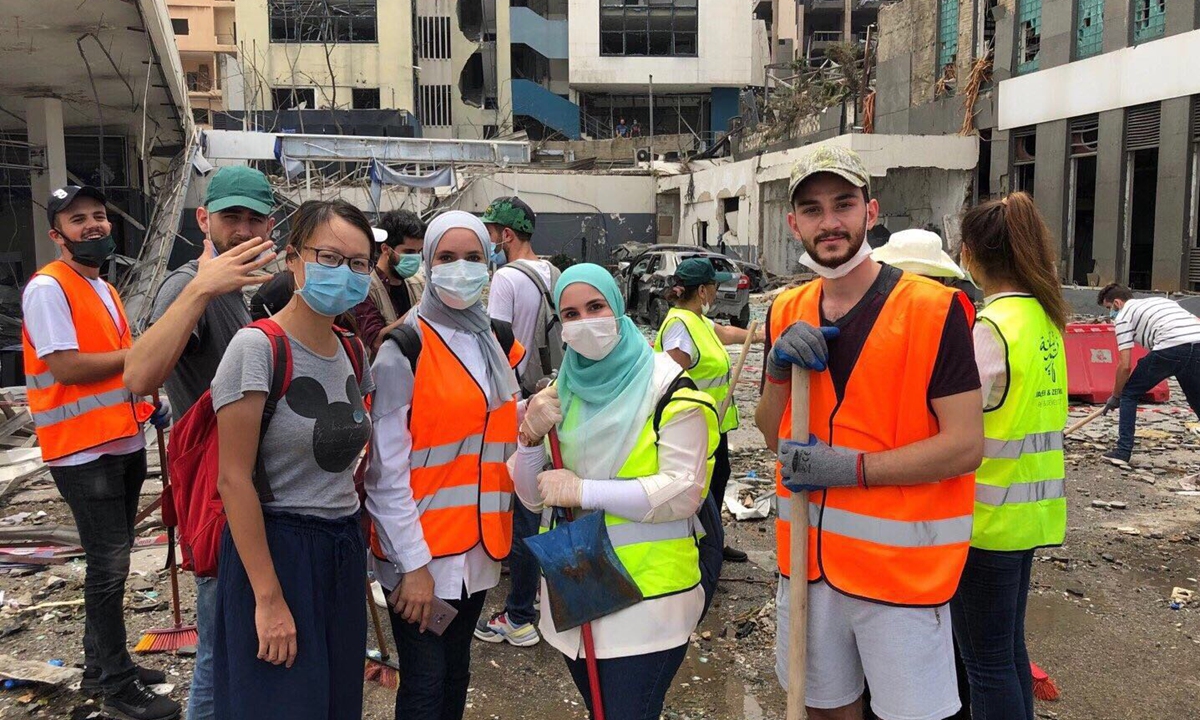Chinese foundation helps in Lebanon after deadly blast
By Leng Shumei Source: Global Times Published: 2020/8/11 20:43:40
Livelihoods deserve top priority: expert

Photo: Wang Ke's Sina Weibo account
The smoke from a deadly blast in Beirut last week has ended, but the consequences of the tragedy are undeniably still haunting the country in light of the massive demonstrations fueled by anger over corruption and the plight of 300,000 residents left homeless after the blast.Lebanon's prime minister and his cabinet announced to resign on Monday local time amid roaring anger among the public that has spilled onto the streets with thousands of demonstrators blaming their government's negligence and corruption for the blast, and calling for revolution.
"Resign or hang," read some of the banners demonstrators held.
But it is still questionable whether the cabinet's resignation could satisfy a furious public and result in meaningful reforms to the country's political system, according to analysts.
Many governmental buildings including that of the foreign ministry had been occupied by the demonstrators and Beirut is witnessing a severe shortage of living materials, Wang Ke, director general of the Pinglan Public Welfare Fund, told the Global Times on Tuesday.
"The public's panic at the blast has grown into fury. The blast, fueled by long-standing economic and social problems, leads to an explosion of public outrage," he noted.
The Pinglan fund is conducting a house renovation plan in Beirut to help 30 poor families rebuild houses damaged in the blast, a process estimated to take two months and cost more than $26,000.
The catastrophic blast on August 4 has led to at least 158 deaths, more than 6,000 injured and 300,000 homeless. About 21 are still missing, according to media reports.
"Here we see not only pain caused by the blast, but splits between different ethnics and social groups," Wang said.
Lebanon's government announced the blast was caused by more than 2,000 tons of ammonium nitrate stored at a local warehouse since 2014. But US President Donald Trump continued to suggest that the blast might have been a deliberate attack.
"The top priority now is to safeguard people's livelihood and stabilizing the society. The Lebanon government should not be disrupted by external voices to politicize the issue," warned Zhu Weilie, the director of the Middle East Studies Institute of the Shanghai International Studies University.
Lebanon has been in religious disputes for decades and suffered from civil wars for 15 years from 1975-90. "The country could no longer bear any more war," Zhu told the Global Times on Tuesday.
According to the 2020 World Economic Outlook released by the International Monetary Fund in April, Lebanon's gross domestic product will contract 12 percent in 2020, reportedly the largest contraction since the end of the country's 15-year civil war.
Wang said the Pinglan fund is working with local volunteers to help blast victims. "What we can do is limited but enough to express our feeling for Beirut people," he said.
The medical unit of the Chinese peacekeeping forces to Lebanon also said it would provide medical aid to Beirut following the deadly explosions at the port of the Lebanese capital after the explosion.
Posted in: SOCIETY